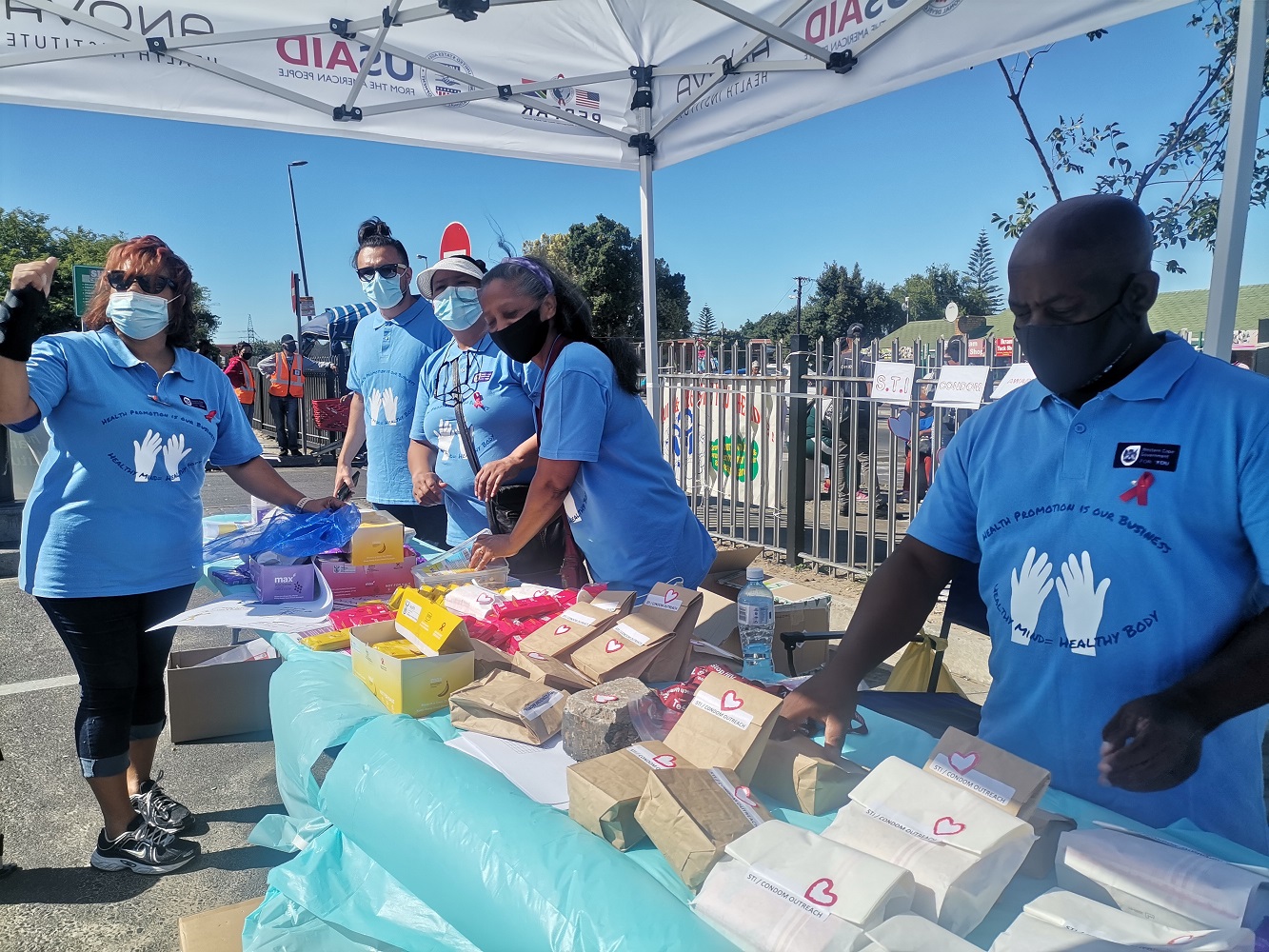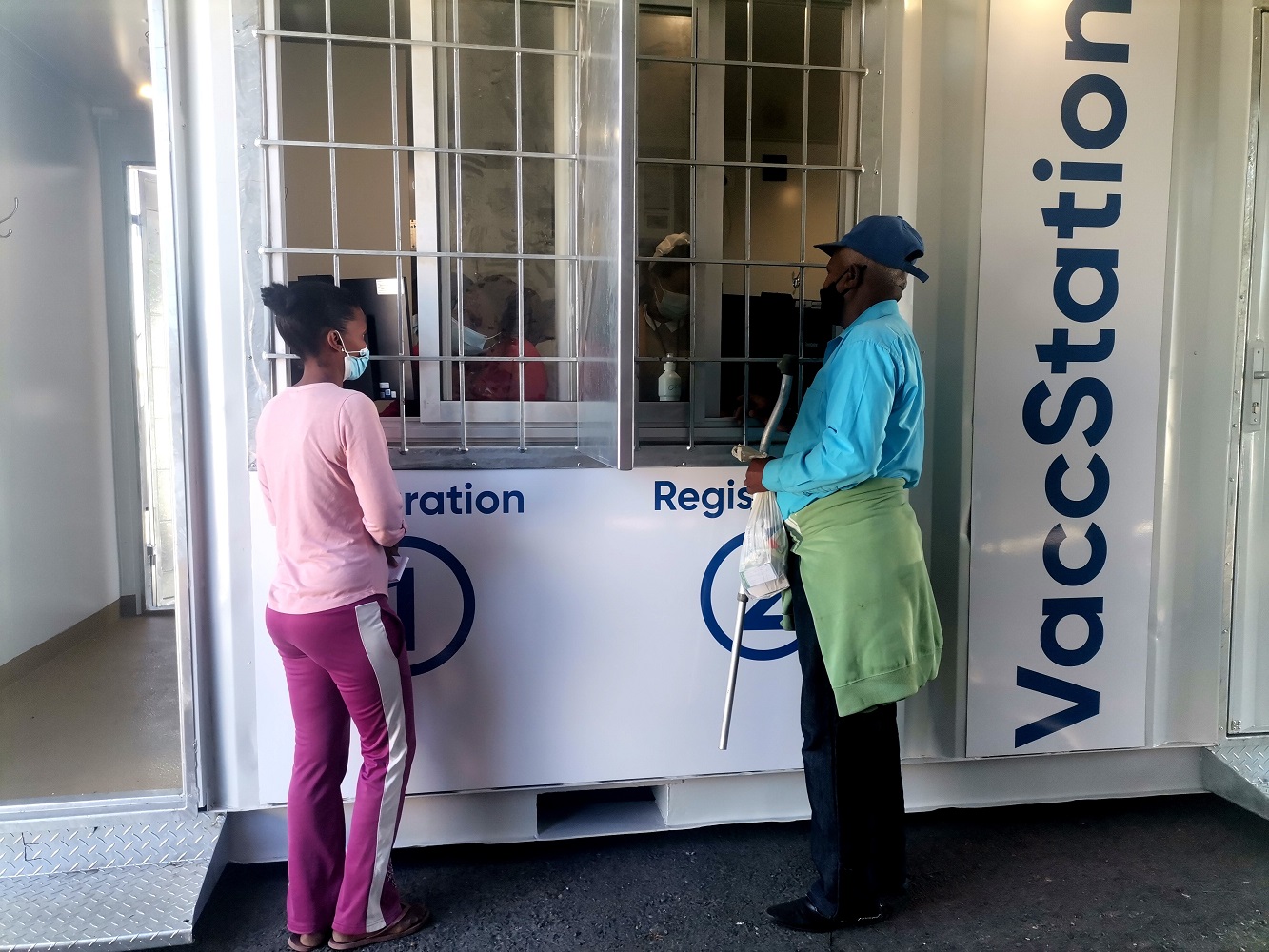
News
Dedicated health services for youth aim to improve access to services
Adolescence can be an exciting and overwhelming time filled with new challenges and adventures for teenagers and their parents.
Whatever the challenges may be during this period, Western Cape Government Health shares a goal with parents: to ensure that every young person gets the healthcare that they need to live their best, healthiest, longest life.
Adolescence is the phase of life between childhood and adulthood (ages 10 to 19) where teenagers may face many challenges that can affect their development. We can group these challenges into three key categories: mental, behavioural and physical.
As we mark Youth Day this week, Dr Estelle Lawrence from Western Cape Government Health shares advice with adolescents and caregivers on navigating these areas and how you can access services specifically aimed at youth in the province.
1. MENTAL HEALTH SUPPORT
Adolescents need a supportive environment that protect their overall health, including their mental health. However, globally, it is estimated that 1 in 7 (14%) 10 to 19 year-olds experience mental health challenges, yet these remain largely unrecognised and untreated, according to the World Health Organisation (WHO). In addition, depression, anxiety and behavioural disorders are among the leading causes of illness and disability among adolescents.
Dr Lawrence says poor mental health can impact many areas of an adolescent’s life and urges teenagers and parents to get support if necessary.
“Mental health problems often coincide with other health and behavioural risks. For example, substance abuse may contribute to violence and related injuries. Alcohol use may contribute to unsafe sex practices and a higher risk of HIV, STIs and unintended pregnancy. When adolescents are struggling with difficult feelings or when they have mental health problems, they often turn to alcohol and other substances to feel better. Unfortunately, because the adolescent’s brain is still developing, using substances is especially harmful and can lead to long-term psychological and cognitive problems.”
You can help your teenager by talking about mental health. If your child is feeling sad, anxious, depressed or appears to be struggling – ask what’s wrong and offer your support. Parents, teachers and friends concerned about a teenager’s mental wellbeing should be willing to listen without judgement, provide reassurance that they care, and make sure they can recognise signs of suicidal thoughts.
“Parents/guardians need to work at building strong bonds and relationships with their adolescent. Studies have shown that if adolescents feel connected to their family, school and community, they are less likely to struggle with poor mental health, substance abuse and violence. They need to know someone cares about them – and this need not be a parent but could be any significant adult that they trust,” says Dr Lawrence.
As a young person, there are things you can do to get help. If you’re feeling overwhelmed at home or school, you can speak to a trusted family member, teacher or school counsellor/nurse for support.
Adolescents can access mental healthcare at their nearest clinic where a trained health practitioner will provide support, refer them to a mental health practitioner, or dial Childline at 116 for telephonic support, depending on their assessment.
2. BEHAVOURIAL HEALTH SUPPORT (SUBSTANCES, UNWANTED PREGNANCY, CONTRACEPTIVES, STI)
Adolescents may face many health and social challenges which puts them at a higher risk of unwanted pregnancy, unsafe abortion and sexually transmitted infections and substance abuse.
Western Cape Government Health primary healthcare facilities offer support to adolescents and families in a way that does not make adolescents feel unwelcomed and embarrassed. Healthcare workers will also keep the reason for your visit confidential.
Adolescent and youth-friendly services have been launched across the province to reduce the impact of teen pregnancies and sexually transmitted infections. While youth can attend any clinic during operational hours to access healthcare, many facilities in the province have dedicated programmes and staff to support teenagers after school between 14:00 – 16:00 from Monday to Friday, to ensure their schooling is not disrupted. Some clinics offer these dedicated services from 07:00.
This means that you can skip the queue and visit your youth-friendly healthcare team to access family planning services such as the morning after pill, contraceptives and condoms, STI testing and counselling, guidance on termination of pregnancy, as well as substance abuse support and referrals. Pregnant adolescents are encouraged to book early at the maternity unit as soon as they are aware of the pregnancy for the benefit and health and safety of the mom and her unborn child.
Remember, if you had unprotected sex (without a condom and contraceptives), you can be pregnant and/or be infected with HIV or a STI. Go to your nearest clinic to be screened and to get the morning after pill (within 5 day after having unprotected sex).
Dr Lawrence has encouraged adolescents and caregivers to access adolescent and youth-friendly services at local clinics. “Adolescence is an important time for laying the foundations of good health, as teens establish behavioural patterns related to physical activity, substance use, nutrition and sexual activity that may affect their current health status, as well as their risk of developing chronic health problems during adulthood. You can access services at your nearest clinic if you need support.”
Western Cape Government Health works with various partners, including the Department of Education, to support adolescents. In some sub-districts, health teams are linked to schools where a “school clinic” is set up. The school clinic is a room where a healthcare worker will be available to share information and provide assistance. This improves access to healthcare for young people.
Other partners include NPO LoveLife https://lovelife.org.za/en who offers support to teens at schools and clinics in the province.
Adolescents can also access valuable information from the B-Wise programme. The website is easy to navigate via phone or computer and provides information on mental health, teenage pregnancy, family planning and STIs. https://bwisehealth.com
3. PHYISCAL HEALTH SUPPORT
“Many health problems diagnosed in adulthood are caused by habits established during adolescence that negatively impact health, such as heart disease caused by diets high in fat and sugar and a lack of physical activity,” explains Dr Lawrence.
However, a healthy diet helps to protect against malnutrition in all its forms, as well as noncommunicable diseases (NCDs), such as diabetes, heart disease, stroke and cancer. Here are a few practical ways to protect your physical health:
- Get regular exercise: WHO recommends for adolescents to accumulate at least 60 minutes of moderate- to vigorous-intensity physical activity daily, which may include play, games, sports, but also activity for transportation (such as cycling and walking), or physical education.
- Eat a healthy diet: Healthy eating is critical for adolescent development. A healthy diet should include plenty of fruits and vegetables, whole grains, a variety of protein foods, and low-fat dairy products. Do your best to avoid junk foods and fizzy drinks.
- Keep vaccination up to date: If you are 12 years and older, you can get your COVID-19 vaccination at your local clinic. Young girls can also get vaccinated against HPV to reduce their risk of getting cervical cancer at their school clinic or nearest local clinic. Parents should ensure that their child’s immunisations are up to date and can visit their local clinic if they have missed any immunisations.
- Take care of your teeth: Brush and floss your teeth daily to protect your gums and teeth. Remember, you can a dentist at your clinic for dental care.
- Get enough sleep: Caregivers should manage screen time to protect their children and ensure they get enough sleep. Experts advise teenagers to get at least 8-10 hours of sleep every day.
GET INVOLVED
During adolescence individuals should be acquiring the skills and knowledge needed to have a productive, healthy and fulfilling adult life. Dr Lawrence has called on communities to work together to promote and protect child and youth healthcare.
“We need a whole-of-government and whole-of-society approach to equip adolescents with the education, support, services and opportunities they need to plan their futures and help them reach their goals. We need to ensure that they have access to health education, including comprehensive sexuality education; adolescent-friendly health services, including sexual and reproductive health; and a supportive environment in their homes and communities.”
Dr Lawrence has a special message for adolescents and youth: “I encourage young people to demand that they be involved in all decisions that affect them. They should support one another in finding solutions to the challenges they face in taking care of their physical and mental health, in creating safe and healthy communities, and in building a healthier future for themselves and their generation. Your health matters – make your voice heard!”
Adolescent and youth-friendly clinics in the Western Cape
Young people can access family planning support, substance abuse referrals, STI counselling and testing, as well as mental health support at their nearest youth-friendly clinic. Find a facility in your area in the list below.
|
Facility |
Operational days and hours |
|
Bishop Lavis CDC |
Monday – Friday |
|
Durbanville CDC |
Monday – Friday |
|
Delft CHC |
Monday – Friday |
|
Elsies River CHC |
Monday – Friday |
|
Kraaifontein CHC |
Tuesdays & Thursday |
|
Parow CDC |
Monday – Friday |
|
Ruyterwacht CDC |
Monday – Friday |
|
Ravensmead CDC |
Monday – Friday |
|
Scottsdene CDC |
Monday – Friday |
|
Symphony Way CDC |
Monday – Friday |
|
Kensington CDC |
Monday – Friday |
|
Lady Michaelis CDC |
Monday – Friday |
|
District Six CDC |
Monday – Friday |
|
Hout Bay CDC |
Monday – Friday |
|
Grassy Park CDC |
Monday – Friday |
|
Lotus River CDC |
Monday – Friday |
|
Heideveld CDC |
Monday – Friday |
|
Hanover Park CHC |
Monday – Friday |
|
Gugulethu CHC |
Monday – Friday 14:00 – 16:00 |
|
Dr Abdurahman CDC |
Monday – Friday |
|
Crossroads CDC |
Monday – Friday |
|
Nyanga CDC |
Monday – Friday |
|
Inzame Zabantu CDC |
Monday – Friday |
|
Mitchells Plain CHC |
Monday – Friday |
|
Mfuleni CDC |
Tuesdays and Thursdays |
|
Macassar CDC |
Monday- Friday |
|
Nomzamo CDC |
Monday- Friday |
|
Michael Mapongwana CDC |
Monday – Friday |
|
Nolungile CDC |
Saturday |
|
West Coast clinics |
All clinics offer youth-friendly services from Monday-Friday. Clients can access services at any time during operational hours. |
|
Cape Winelands clinics |
All clinics offer youth-friendly services from Monday-Friday. Clients can access services at any time during operational hours. |
|
Swellendam Child Welfare office
|
Thursdays |
|
Hermanus CDC in the Club Room |
Mondays |
|
Grabouw Thusong Centre |
Mondays and Wednesdays |





